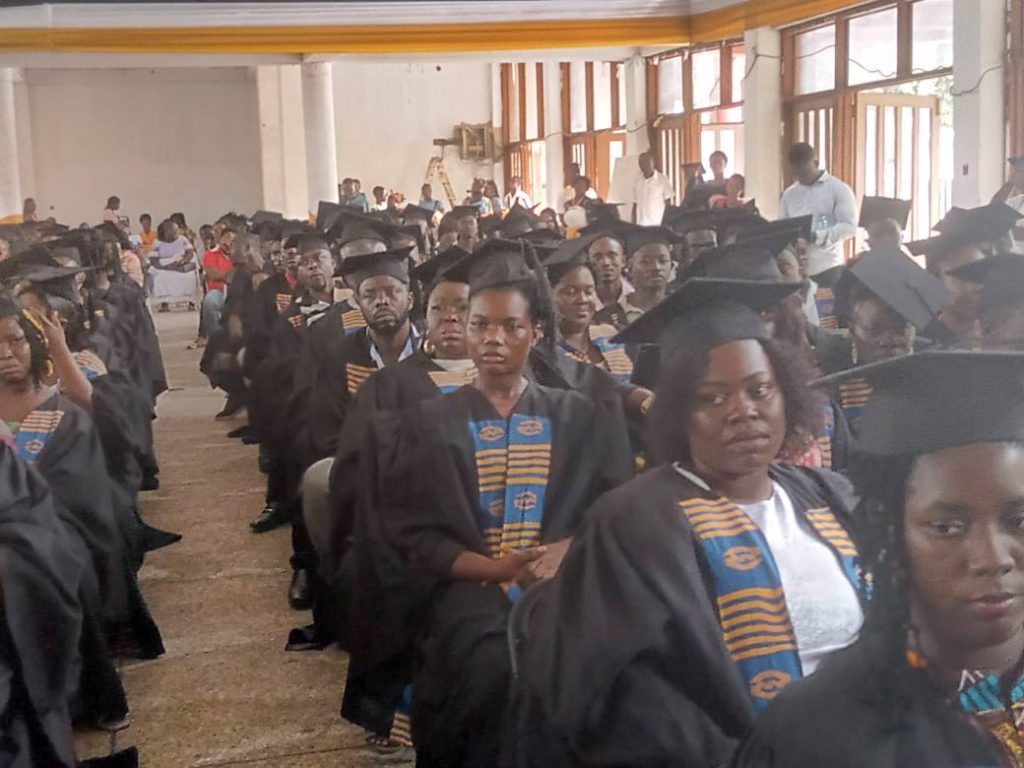By Muyid Deen Suleman, GNA
Kumasi, Dec. 9, GNA – The Ghana National Petroleum Commission (GNPC) Foundation for Livelihood Empowerment Programme has trained and graduated 389 artisans in the Ashanti Region at a colourful event at the Kumasi Cultural Centre on Saturday.
The programme, under the Skilled Artisan Project (SAP), initiated by the Government, seeks to support and build the capacities of Ghana’s youth to ensure that many of them became employable and economically independent to support their families and communities.
The various training modules were put together by GNPC with support from ASEDA Foundation, which facilitates the training and liaises with the National Vocational Training Institute (NVTI) to examine the trainees and issue them with certificates.
The graduands went through three years of apprenticeship in varied vocational skills such as fashion designing, carpentry, tiling, plumbing, makeup, auto-mechanics and general electrical.
Others were hairdressing, interior and exterior designing, event decoration, aluminium fabrication, motor vehicle mechanic, engineering, steel bending, shoe making, catering, and baking.
They were also provided with soft skills training as well as standards of business and entrepreneurship practices such as bookkeeping, marketing or sales, branding, customer relations, attitude to work and safety at work.
The graduands received sets of start-up kits relevant to their specialisation to prepare them for their entrepreneurial journeys.
The start-up kits included industrial sewing machines, dryers, local ovens, tile cutting machines, aluminium sawing machines, diagnostic machines, Polishing machine, cylinder, and gas stoves.
Dr Dominic Eduah, the Executive Director of GNPC Foundation, said the training would enhance the employability of the artisans and empower them to pursue their entrepreneurial dreams.
He said the Foundation had, since 2018, granted scholarships to more than 7,500 people, including the 1,700 who were graduating in 2023.
He noted that more than 350 students had also been given scholarships for studies in some specialised academic areas.

Among them are about 200 medical students in their final year in Cuba, who would soon return to work in some deprived districts in Ghana.
Dr Eduah said the Foundation had commissioned several schools to help in the delivery of technical and vocational education and to ensure that Ghanaians, no matter their geographical location, benefited from the oil money.
Education, he noted, remained an important platform towards national development, hence the Foundation’s investment in the sector to make it accessible to every Ghanaian child.
In the Ashanti Region alone, the Foundation had built over 150 boreholes, which were greater achievements in the developmental agenda.
The GNPC was also responsible for ensuring that Ghanaians obtained the greatest possible benefits from the development of the country’s petroleum resources, he said.
Nana Okyere Kusi Ntrama, the Paramount Chief of Essumeja Traditional Area, who chaired the programme, advised the beneficiaries to put their skills to good use to benefit themselves and society.
Some of the beneficiaries told the GNA that they were happy with the intervention and hoped that the GNPC would extend the programme to other areas, especially the villages.
GNA